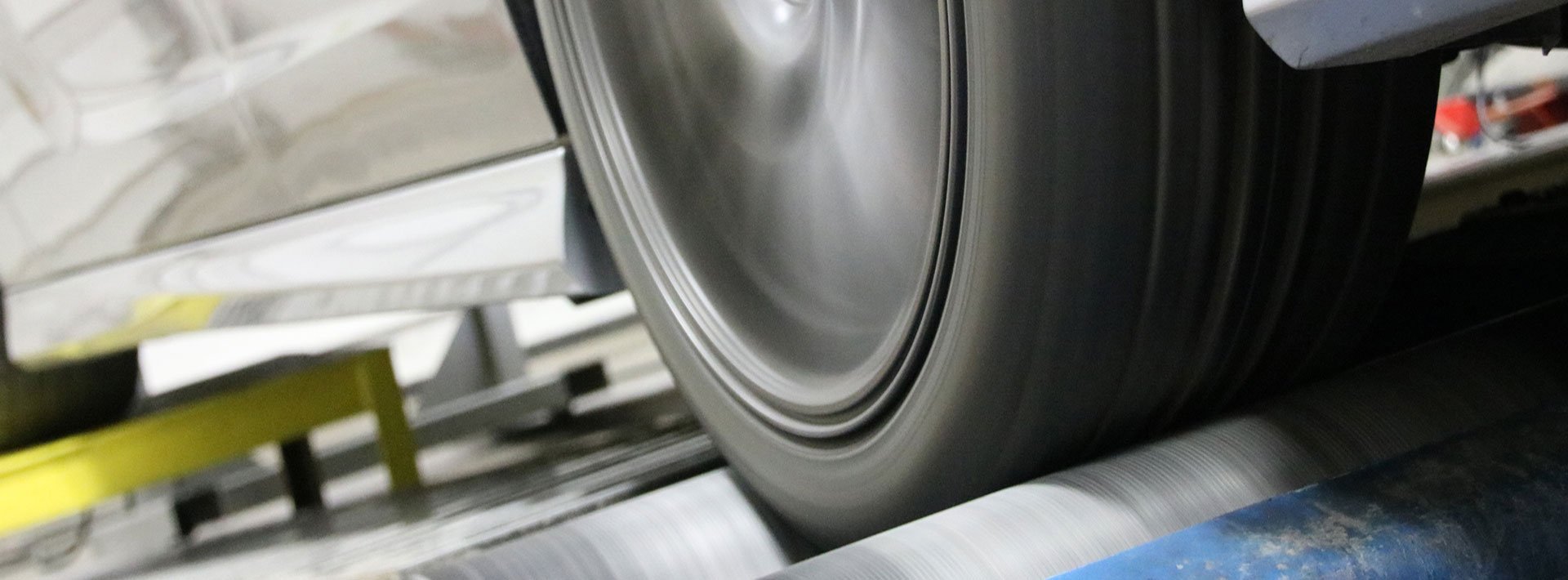JIS D4103 Passenger Car Wheel Fatigue Performance Testing
The JIS D4103 standard is an integral part of quality assurance and compliance in the automotive industry. This test evaluates passenger car wheels under various fatigue loading conditions to ensure their durability, reliability, and safety over extended use cycles.
Automotive wheel fatigue performance testing is crucial for manufacturers to meet regulatory standards and ensure customer satisfaction. The JIS D4103 standard sets forth stringent requirements that help identify potential weaknesses in the design and manufacturing process of wheels. By adhering to these guidelines, automotive companies can enhance their brand reputation and maintain a competitive edge.
The test protocol involves subjecting wheel specimens to controlled cyclic loading conditions designed to mimic real-world driving scenarios. The primary goal is to determine the maximum number of cycles (fatigue life) that a wheel can withstand before it exhibits signs of failure or degradation. This comprehensive evaluation allows manufacturers to optimize their designs, improve material selection, and enhance overall product quality.
The JIS D4103 standard covers various aspects of passenger car wheels, including dimensions, materials, construction methods, and performance criteria. Compliance with this standard ensures that the tested wheels meet strict quality benchmarks, thereby contributing to safer and more reliable vehicles on the market.
Compliance officers, R&D engineers, and procurement teams play a vital role in implementing JIS D4103 testing within their organizations. They must ensure that all wheel specimens undergo rigorous fatigue performance assessments according to the specified procedures outlined in the standard. This process involves meticulous specimen preparation, precise instrumentation setup, and accurate data collection.
Real-world usage notes highlight the importance of consistent testing protocols across different environments. For instance, wheels subjected to harsh weather conditions or high-speed maneuvers may experience accelerated fatigue compared to those used under more benign circumstances. By understanding these factors, manufacturers can better tailor their testing approaches to reflect actual operational scenarios.
The JIS D4103 standard also emphasizes the significance of selecting appropriate test specimens that accurately represent the end products. Specimen preparation plays a crucial role in ensuring accurate results; improper handling or inadequate conditioning could lead to erroneous conclusions about wheel fatigue performance. Therefore, it is essential for laboratories conducting these tests to follow strict guidelines regarding specimen selection and treatment.
Instrumentation used during JIS D4103 testing must be calibrated regularly to maintain accuracy throughout the evaluation process. Advanced measurement systems capable of capturing detailed strain distributions within wheels are often employed to provide comprehensive insights into their structural integrity under cyclic loading conditions.
The comprehensive nature of JIS D4103 testing ensures that wheel manufacturers have reliable data upon which they can base improvements in design and manufacturing processes. This information helps identify areas where further optimization might be necessary, leading ultimately to enhanced product quality and reduced failure rates.
Scope and Methodology
| Parameter | Description |
|---|---|
| Test Specimens | Typically, two wheel rims per test are required. |
| Cyclic Loading Conditions | Specified by frequency and amplitude according to JIS D4103. |
| Data Collection | Includes measurement of deflection, strain distribution, and other relevant parameters. |
| Failure Criteria | Determined based on visual inspection for cracks or deformation exceeding specified limits. |
The JIS D4103 standard specifies detailed procedures for conducting fatigue performance tests on passenger car wheels. These include selecting appropriate test specimens, applying cyclic loading conditions according to prescribed parameters, collecting data through advanced measurement systems, and defining failure criteria based on visual inspections.
Compliance with the JIS D4103 standard is essential for automotive manufacturers aiming to ensure their products meet stringent quality requirements. By following this rigorous testing protocol, companies can gain valuable insights into potential weaknesses in wheel design and manufacturing processes, enabling them to make informed decisions regarding improvements.
Eurolab Advantages
At Eurolab, we pride ourselves on offering unparalleled expertise and state-of-the-art facilities for JIS D4103 passenger car wheel fatigue performance testing. Our team of experienced professionals ensures that every aspect of the testing process adheres strictly to international standards.
- Accurate Instrumentation: We utilize cutting-edge measurement systems capable of providing precise data on strain distributions within wheels.
- Comprehensive Specimen Preparation: Our laboratories employ meticulous techniques for preparing test specimens, ensuring accurate and consistent results.
- Rigorous Calibration Procedures: All instruments are regularly calibrated to maintain absolute accuracy throughout the evaluation process.
- Advanced Data Analysis: Our analysts use sophisticated software tools to interpret collected data, providing valuable insights into wheel fatigue performance.
By leveraging these advantages, Eurolab offers reliable and trustworthy results that can help automotive manufacturers improve their products' quality and reliability. Our commitment to excellence ensures that every test conducted meets the highest standards of accuracy and consistency.
International Acceptance and Recognition
- JIS D4103 is widely accepted in Japan and recognized globally for evaluating passenger car wheel fatigue performance.
- The standard has been adopted by numerous international organizations, including ISO, ASTM, and SAE.
- Multinational automotive companies often require their suppliers to comply with JIS D4103 standards as part of the procurement process.
Compliance with JIS D4103 is crucial for maintaining competitive advantage in the global market. Many leading manufacturers and suppliers rely on this standard to ensure their wheels meet strict quality requirements, thereby enhancing product performance and safety.





